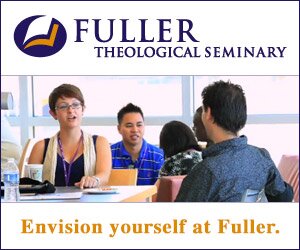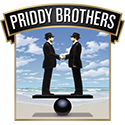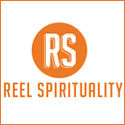Gods and Kings: Ridley Scott’s Exodus and Interfaith Dialogue
By Dr. Kutter Callaway
Dr. Callaway is an Affiliate Assistant Professor of Theology and Culture at Fuller Theological Seminary. His musings are typically focused on film, music, and contemporary culture.
It had all the makings of a stereotypical joke. You know the one: a Christian, a Muslim, and a Jew walk into a screening of Ridley Scott’s Exodus: Gods and Kings…
But this was no joke. Twentieth Century Fox invited me and two others down to their studios to screen an early cut of the film. I walked in with many of the same expectations that filmgoers will have as they consider watching Exodus. I mean, it is Ridley Scott and Christian Bale. Just mix one part Maximus Aurelius with one part Batman (minus the cape and cowl of course). Add generous amounts of costuming and set designs from the Ancient Near East and—voila—a biblical epic for the contemporary world.
All kidding aside though, I really enjoyed Exodus as a movie, in part because it is actually entertaining (thanks Ridley!), but also because it is asking all the right questions—questions that not only emerge from the Moses story itself, but questions that address our contemporary situation. 
For some viewers, Bale’s Moses may come off a bit more like William Wallace than the biblical prophet, but the overarching narrative makes clear that his efforts to overcome an oppressive nation-state through brute force and military strategy are utterly worthless. He may wield a sword instead of a staff, but he quickly discovers that leadership—real leadership—begins not with coercion or manipulation, but with a willful surrender of the self. Because he places the needs of others first, he ultimately moves his people toward and not away from peace—even in the face of egregious violence.
All of this is fine and well, but as the lights came on and our little group began to discuss the merits of the film, something occurred that I had not anticipated when I first arrived. That is, at some point, our conversation took a turn and developed into a full-fledged inter-faith dialogue. We talked not only about the film’s depiction of Moses, but also how the Moses narrative functioned within our own faith traditions. We wondered aloud together: was this more of a “Jewish” or a “Christian” or an “Islamic” Moses? What does it even mean for Moses to be “Jewish” or “Christian” or “Muslim” when his story predates all of these traditions? How would people in each of our communities respond to the film, and more importantly, why? What did we make of the racial critiques that the film was already garnering, and that the loudest voices were not coming from within our faith communities?
The conversation was both enlightening and profound, partly because each of us represented groups that, at the risk of understatement, have not always seen eye to eye. Yet, there we were, listening to each other, learning from each other, and even enjoying each other’s company. And none of this would have taken place without Exodus.
It probably shouldn’t have taken me by surprise. After all, the Moses narrative is a part of sacred scripture for literally billions of people around the globe. But there was something about the fact that we were watching a movie that created space for a different kind of conversation. Our small group was not unlike most audiences. Few if any of us are professional film critics, but everyone has an opinion (Don’t believe me? Spend five minutes on IMDb or Rotten Tomatoes). Engaging in dialogue about the power and meaning of a movie is simply what we do. It’s part of the fun.
We go out after movies to talk about them. We log in to our favorite forum and air our disappointments or surprises. In these contexts, differences of opinion matter, and they are passionately argued. But somehow we manage to engage in these impassioned conversations while also maintaining a level of civility. It’s almost as if movies have taught us how to maintain our convictions without turning to hatred and violence.
I’m not sure if you’ve noticed, but this kind of dialogue is rare in the modern world, especially when it comes to issues of religion. Our public discourse is increasingly marked by polarization, violence, and hate. Politics, sports, media—you name it. We’ve forgotten how to listen, how to empathize, how to understand.
The result? Our speech is no longer free. And the toll our words are taking is proving fatal.
Full disclosure: I am a Christian who teaches theology and culture at Fuller Theological Seminary in Pasadena. I am also the seminary’s director of church relations, which means that I interact on a daily basis with a broad swath of evangelical Christianity. That being said, in no way do I speak for the whole of Evangelicalism. It is a broad and diverse group. But of this I am fairly certain: Evangelicals are as guilty as anyone else of perpetuating this cultural impasse.
Whether it’s sweeping condemnations of films before we have even seen them, or our tendency to spew vitriol at members of our own faith community in the public square, we have not helped the situation. We have actually made matters worse. And we need to ask for forgiveness. I need to ask for forgiveness.
But we need to do more. We also need the imagination and the courage to live differently.
So let me throw out a crazy thought: What if Exodus actually presented us with an opportunity to live in exactly this way—even if it was only as a first step? Of course, I can only speak here as a Christian and to my fellow Christians. My Jewish and Muslim sisters and brothers might find these suggestions helpful, but each of the Abrahamic traditions will need to forge their own unique responses to this film.
Here then is what I learned from my viewing of Exodus: For Christians to have constructive conversations with those who are not like them (religiously, politically, racially, or otherwise), we need to assume a fundamentally different posture. When it comes to a movie like Exodus, we first need to recognize that we don’t own the copyright privileges to the Moses story. We share the Moses narrative with other faith traditions. Claims of sole ownership are sure to shut the conversation down because they are fundamentally missing the point: this story does not belong to us; we belong to it. 
Second, we need to enter these conversations with the awareness that we don’t even have exclusive rights to our own biblical text. Not only does the Hebrew bible comprise the bulk of the Protestant canon, but the biblical story itself is public domain. Our lack of control over the biblical source material is something that should be celebrated, not lamented. Isn’t it our claim that the biblical story is for everyone? To put it in modern terms, the bible has always been open source. So the fact that Twentieth Century Fox can put the biblical narrative on the big screen is a wonderful blessing, if only we could see it as such.
Finally, and perhaps most importantly, Christians don’t possess God. It should go without saying, but God is free to move and speak and act with or without us. Throughout our broken history, we have been tempted to think that we have the corner market on God, and the consequences have always been tragic. It is significant then, that it is this God—the one who cannot be coerced or owned or contained or manipulated—that we meet in Ridley Scott’s version of the Exodus story. Just as the subtitle of the film suggests—Gods and Kings—to assume that we are the arbiters of when and where God speaks is not only an extreme act of hubris; it is also to deny others any access to God’s story.
Dr. Callaway contributed to Halos and Avatars (2010), the first book on theology and video games, and Don’t Stop Believin’ (2012), a dictionary of religion and popular culture. His most recent book, Scoring Transcendence:Contemporary Film Music as Religious Experience was published by Baylor University Press in January 2013. Kutter teaches courses for Fuller’s Brehm Center for Worship, Theology, and the Arts, one of which takes place at the Sundance Film Festival. He also serves on the editorial board for the Journal of Religion and Film and is a regular contributor to Reel Spirituality.
Read more: http://www.patheos.com/blogs/fuller/2014/12/gods-and-kings-ridley-scotts-exodus-and-interfaith-dialogue/#ixzz3LiHnxnkV













